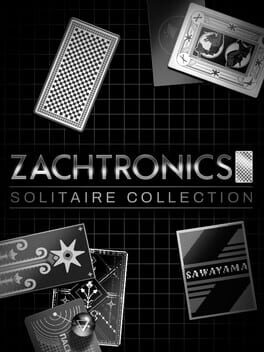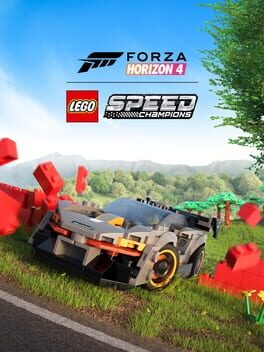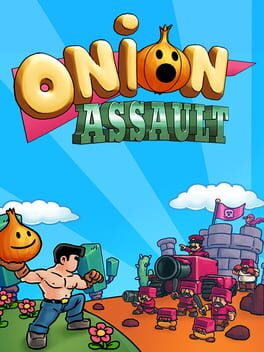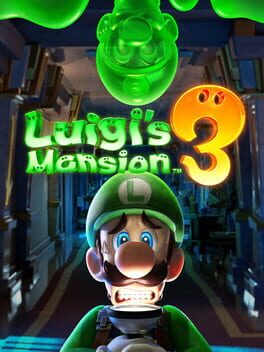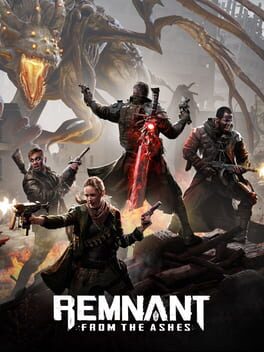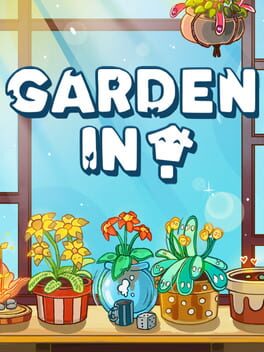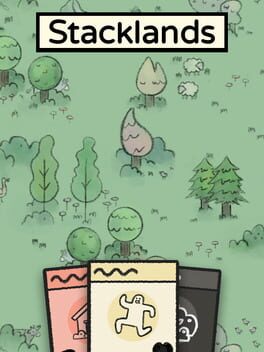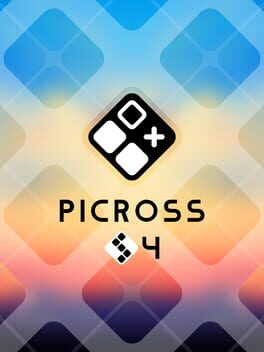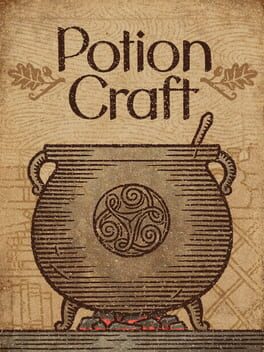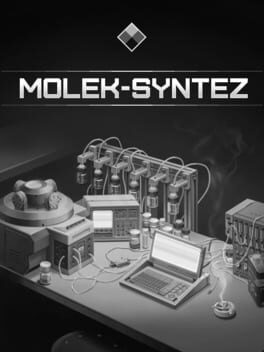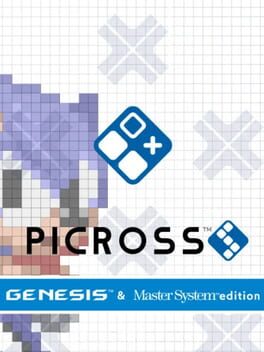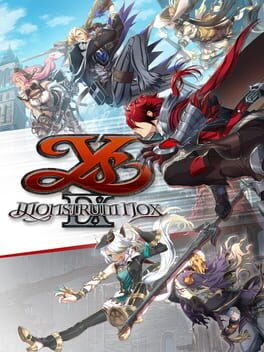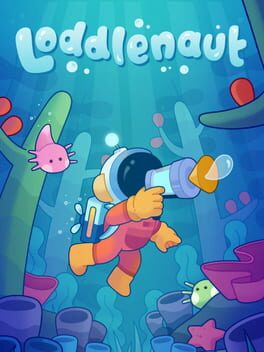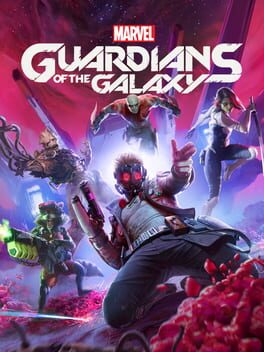HGRezende
I had played most of the variants while playing Zachtronics games, but there were still a few games I skipped and there was a brand new one so I had to try this.
Fortune's Foundation which is the new variant is ruthless, very very hard, but extremely satisfying to get a win. Sawayama (from Last Call BBS) and Shenzhen (from Shenzhen I/O) are among my other most liked, they are similar to the usual "Windows" patience, but they work really well.
I enjoyed Sigmar's Garden (from Opus Magnum) more in the past, here it doesn't compare too favorably I think, but it is the most unique one. Cribbage (from Möbius Front) is one I didn't play, and I didn't really vibe with it, but it is also one of the more unique takes.
Kabufuda (from Eliza), Cluj (from Molek-Syntez) and Proletariat (from Exapunks) are all fun too, if a bit similar to each other, they still have their own twists.
Even if you played all the past games, Fortune's Foundation is very much worth it, and having all the options in the same package also feels good when you can take a break and relax on the easier ones, instead of diving into an intense round of harder variants.
Fortune's Foundation which is the new variant is ruthless, very very hard, but extremely satisfying to get a win. Sawayama (from Last Call BBS) and Shenzhen (from Shenzhen I/O) are among my other most liked, they are similar to the usual "Windows" patience, but they work really well.
I enjoyed Sigmar's Garden (from Opus Magnum) more in the past, here it doesn't compare too favorably I think, but it is the most unique one. Cribbage (from Möbius Front) is one I didn't play, and I didn't really vibe with it, but it is also one of the more unique takes.
Kabufuda (from Eliza), Cluj (from Molek-Syntez) and Proletariat (from Exapunks) are all fun too, if a bit similar to each other, they still have their own twists.
Even if you played all the past games, Fortune's Foundation is very much worth it, and having all the options in the same package also feels good when you can take a break and relax on the easier ones, instead of diving into an intense round of harder variants.
While still as fun to drive in as any additional map would be, I feel there is something missing to really complete the package, and it would mostly be more LEGO.
Not every new car is LEGO, they already add very few new cars with each expansion, and even unlocking some of the few choices requires playing a lot of the expansion, which limits your possibilities if you just want play with LEGO cars.
In general the map and races feel uninspired (a lot of mirror A to B, B to A races), and collectables that appear only at night or when raining AND are only unlocked deep into the expansion make for an uneven experience, that is still good, but could be much better.
Not every new car is LEGO, they already add very few new cars with each expansion, and even unlocking some of the few choices requires playing a lot of the expansion, which limits your possibilities if you just want play with LEGO cars.
In general the map and races feel uninspired (a lot of mirror A to B, B to A races), and collectables that appear only at night or when raining AND are only unlocked deep into the expansion make for an uneven experience, that is still good, but could be much better.
2023
It's hard to describe Onion Assault, it doesn't really do anything wrong but it also lacks a spark to make it interesting.
Some stages work better than others, the railcart level with cannons is very fun but then there is also a swaying tree one that has this weird inertia with your movement. I also feel some parts can be frustrating, especially with a lives system that in modern games feel very unnecessary.
If you are looking for a short burst of "Super Mario Bros. 2"-like gameplay, you can probably enjoy Onion Assault, just don't expect anything that will blow your mind.
Some stages work better than others, the railcart level with cannons is very fun but then there is also a swaying tree one that has this weird inertia with your movement. I also feel some parts can be frustrating, especially with a lives system that in modern games feel very unnecessary.
If you are looking for a short burst of "Super Mario Bros. 2"-like gameplay, you can probably enjoy Onion Assault, just don't expect anything that will blow your mind.
2019
I'm about to say some mean things about a game that I feel is still very good, but I can't help but feel disappointed because I expected something different.
A lot of complaints about the second game point to the mission structure, and while here you don't have a mission select menu I feel like each floor feels even more segmented as a mission and disconnected from the whole. With the second game there was still a sense of discovery at the new areas you got to explore in each mission, and a progression that felt connected. In this game you barely get to feel any sense of exploration as each floor plays mostly as a linear mission to the boss and you don't experience anything else in that space again, just taking the elevator to the next set of rooms (Don't even try to bring up the Polterkitty).
Also in the pursuit of a bigger, more complex game Luigi's moveset is expanded with too many similar possibilities. Let's suppose there is an object you need to break or open, you'll have five moves that could potentially be the solution:
1 - Interact directly with it with the X button
2 - Use the Poltergust to vacuum it and open
3 - Use the Suction Shot and pull it open
4 - Use the Burst and send an air wave to break it
5 - Throw something bigger/harder at it to break
Sometimes puzzles need one of these specific moves and nothing else works, some trial and error ends up happening and you can get somewhat stuck for things that just lack a visual clarity in what it requires.
I feel both prior games achieve better results being simpler games, but it is hard to be a big budget game and not just be bigger to justify the price or even it's existence. Luigi's Mansion 3 is a gorgeous game, it has many unique bosses and many environments to see, but if I ever decide to replay any games in the series, I'll certainly favor the first two.
A lot of complaints about the second game point to the mission structure, and while here you don't have a mission select menu I feel like each floor feels even more segmented as a mission and disconnected from the whole. With the second game there was still a sense of discovery at the new areas you got to explore in each mission, and a progression that felt connected. In this game you barely get to feel any sense of exploration as each floor plays mostly as a linear mission to the boss and you don't experience anything else in that space again, just taking the elevator to the next set of rooms (Don't even try to bring up the Polterkitty).
Also in the pursuit of a bigger, more complex game Luigi's moveset is expanded with too many similar possibilities. Let's suppose there is an object you need to break or open, you'll have five moves that could potentially be the solution:
1 - Interact directly with it with the X button
2 - Use the Poltergust to vacuum it and open
3 - Use the Suction Shot and pull it open
4 - Use the Burst and send an air wave to break it
5 - Throw something bigger/harder at it to break
Sometimes puzzles need one of these specific moves and nothing else works, some trial and error ends up happening and you can get somewhat stuck for things that just lack a visual clarity in what it requires.
I feel both prior games achieve better results being simpler games, but it is hard to be a big budget game and not just be bigger to justify the price or even it's existence. Luigi's Mansion 3 is a gorgeous game, it has many unique bosses and many environments to see, but if I ever decide to replay any games in the series, I'll certainly favor the first two.
Remnant is a tight game that knows what it wants to achieve and focuses on what it does best: gripping combat, unique weapons and mystery.
One of the most interesting aspects is how everything feels like a collection, from the arsenal to your traits, your experiences and discoveries translate into a collection of gameplay options that make you feel stronger and are rewarding to discover.
I do feel like sometimes the scarcity of currency can make all the options feel underutilized, and it would feel better if I could change my build more easily than farming a lot of scrap and lumenite, but it is a hard point to balance and you do have a bit of extra room to change.
I've played it right now after numerous patches and the addition of things like Adventure Mode make the experience a lot smoother than it was at launch, but I think they nailed a lot of fundamental choices in the design that makes Remnant a solid first start and an excellent foundation for things to come.
One of the most interesting aspects is how everything feels like a collection, from the arsenal to your traits, your experiences and discoveries translate into a collection of gameplay options that make you feel stronger and are rewarding to discover.
I do feel like sometimes the scarcity of currency can make all the options feel underutilized, and it would feel better if I could change my build more easily than farming a lot of scrap and lumenite, but it is a hard point to balance and you do have a bit of extra room to change.
I've played it right now after numerous patches and the addition of things like Adventure Mode make the experience a lot smoother than it was at launch, but I think they nailed a lot of fundamental choices in the design that makes Remnant a solid first start and an excellent foundation for things to come.
2023
Games about cultivating plants and flowers always fascinate me, from the chill zen games to something more action packed like Plants vs. Zombies. Something that always plays a part in these games is time. Watching plants grow and waiting for them to grow. Garden In! nails a lot of things, but it could certainly slow down a bit.
The time plants take to grow in the game is too long for you to have it open and observe, but the needs of the plants drain too quickly that just returning after a couple of hours is overwhelming. As the game already uses real-life time, it could let you check in on your garden once every day, and feel the growth over time. As it is, you'll return after a few hours, see all the plants dried, water everything, and then plants go straight from little sprout to full plant instantly.
Despite this, the game is still very visually appealing, the dioramas you can built are really charming, and you have a lot of control and options for object placement and colors. You can also see how the bred flowers sometimes carry certain elements from the parents and their designs are cool looking.
Overall I think the visuals and customization the player have are strong, but it is somewhat disappointing to check in and see everything infested and dry after so little time has passed. Even if just some water will make everything look good again, I wish I could feel I have been taking good care of the plants day after day.
The time plants take to grow in the game is too long for you to have it open and observe, but the needs of the plants drain too quickly that just returning after a couple of hours is overwhelming. As the game already uses real-life time, it could let you check in on your garden once every day, and feel the growth over time. As it is, you'll return after a few hours, see all the plants dried, water everything, and then plants go straight from little sprout to full plant instantly.
Despite this, the game is still very visually appealing, the dioramas you can built are really charming, and you have a lot of control and options for object placement and colors. You can also see how the bred flowers sometimes carry certain elements from the parents and their designs are cool looking.
Overall I think the visuals and customization the player have are strong, but it is somewhat disappointing to check in and see everything infested and dry after so little time has passed. Even if just some water will make everything look good again, I wish I could feel I have been taking good care of the plants day after day.
2022
Great roguelikes know your best weapon to advance is knowledge and Stacklands very much uses the element of discovery in its favor. Each new idea on how to mix and match the resource cards at your disposal makes things you struggled with at the start become merely a simple step towards a bigger and more complex future.
Even though I enjoy the build up of knowledge, I get a lot of friction from how some things progress. For example building a huge stack of sheds to increase the card limit, it isn't hard but it feels annoying.
Discovering how Stacklands works is great and I enjoyed exploring some of the first steps, unlocking all the packs and many ideas, but sometimes the chaotic nature of creatures and some more repetitive chores to keep the board in working condition do exhaust me a bit, so I'm moving on.
Even though I enjoy the build up of knowledge, I get a lot of friction from how some things progress. For example building a huge stack of sheds to increase the card limit, it isn't hard but it feels annoying.
Discovering how Stacklands works is great and I enjoyed exploring some of the first steps, unlocking all the packs and many ideas, but sometimes the chaotic nature of creatures and some more repetitive chores to keep the board in working condition do exhaust me a bit, so I'm moving on.
2020
2021
The unique mechanics of crafting a potion in this game are what I love the most and what leaves such a strong impression for me. Seeing the path each ingredient traces over the alchemy map, the discovery of new effects, it is something truly special and for that alone I think it is worth to check out this game. But then you add everything else and it is just not quite there.
It feels like even though they released 1.0 the game is not quite ready, and the extensive roadmap they published shortly after release kind of reinforces the sentiment. Haggling with merchants and clients becomes more annoying than fun very early and getting ingredients rely a lot on RNG.
The Alchemy Machine is an idea that has potential, but right now it just feels like a time/resource sink that isn't fun. It starts by already taking a long time until the merchant decides to sell you parts and recipes for it, and then it requires a good number of crazy potions that while adding challenge to figure out how to brew, it also introduces problems by requiring you to waste so many ingredients and time to ever use again. It feels exaggerated to the point you don't want to interact with it.
As I opened the review with, I love the act of crafting the potion, but then the game starts to demand a lot of time and it just feels like you are spinning your wheels and not making meaningful progress, there is a constant feeling that you are ready for the next thing and the game holds you into the same place for some time. I'll definitely be checking out further updates and I think it is very much worth it to put a few hours into it just because the crafting is so unique, but right now it demands too much to see everything it has to offer.
It feels like even though they released 1.0 the game is not quite ready, and the extensive roadmap they published shortly after release kind of reinforces the sentiment. Haggling with merchants and clients becomes more annoying than fun very early and getting ingredients rely a lot on RNG.
The Alchemy Machine is an idea that has potential, but right now it just feels like a time/resource sink that isn't fun. It starts by already taking a long time until the merchant decides to sell you parts and recipes for it, and then it requires a good number of crazy potions that while adding challenge to figure out how to brew, it also introduces problems by requiring you to waste so many ingredients and time to ever use again. It feels exaggerated to the point you don't want to interact with it.
As I opened the review with, I love the act of crafting the potion, but then the game starts to demand a lot of time and it just feels like you are spinning your wheels and not making meaningful progress, there is a constant feeling that you are ready for the next thing and the game holds you into the same place for some time. I'll definitely be checking out further updates and I think it is very much worth it to put a few hours into it just because the crafting is so unique, but right now it demands too much to see everything it has to offer.
2019
Molek-Syntez is another of the more visual games from Zachtronics, that while still using some kind of programming logic are less about coding and use a set of instructions that are more approachable to someone with no programming experience.
It is hard for me to not compare this game to Opus Magnum, even though they are trying different things, overall I can't help but feel that it doesn't reach the same levels in both presentation or gameplay. It still provides a solid Zachtronics experience, with lots of opportunities to optimize your solutions, just don't expect gifs that are as mesmerizing as Opus Magnum.
It is hard for me to not compare this game to Opus Magnum, even though they are trying different things, overall I can't help but feel that it doesn't reach the same levels in both presentation or gameplay. It still provides a solid Zachtronics experience, with lots of opportunities to optimize your solutions, just don't expect gifs that are as mesmerizing as Opus Magnum.
2019
Ys IX is at the same time very similar but also quite different from Ys VIII. Lacrimosa of Dana is my only experience with Ys before this game so I don't have much else to compare it too.
On one hand the gameplay, combat and exploration are quite fun, and just as good, but I feel the setting doesn't quite work as much to me. Equipment progression also has some bumps, I guess they had a specific balance of crafting and purchasing that I wasn't quite grasping.
The group of characters you meet is quite endearing and I really liked the interactions between them. I might not think the game is as great as VIII (tough act to follow really), but it was still a fantastic journey, let's see where the wind takes us next.
On one hand the gameplay, combat and exploration are quite fun, and just as good, but I feel the setting doesn't quite work as much to me. Equipment progression also has some bumps, I guess they had a specific balance of crafting and purchasing that I wasn't quite grasping.
The group of characters you meet is quite endearing and I really liked the interactions between them. I might not think the game is as great as VIII (tough act to follow really), but it was still a fantastic journey, let's see where the wind takes us next.
2023
I'm not quite sure what to even say about this one. I loved Automata, but even then it was an effort to actually dedicate time to play it. I feel the same about this one. Haven't actually started it up in a long time so I decided it was finally time to uninstall for now. Might play when they announce a new game in the series.
Not too much of a superhero fan, but I heard great things about it and was convinced to give it a try. In a surprising turn of events, I'm actually enjoying the story, but the gameplay feels so shallow it is hard to keep going forward. I'm shelving it just because I'm curious enough about the story that getting back to it someday isn't completely impossible.
